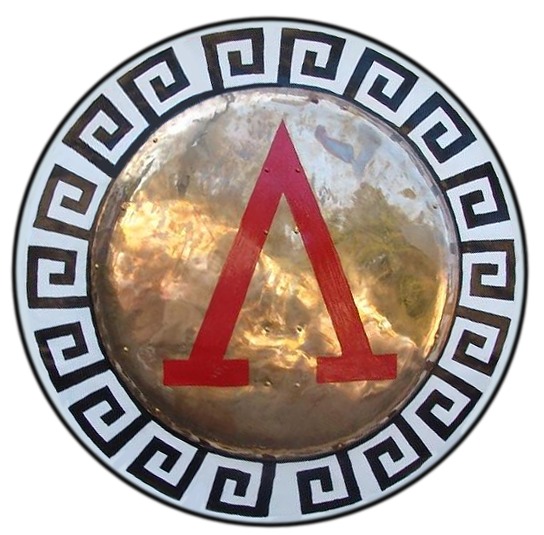- DanielCC
- Administrator
 Offline
Offline - Registered: 6/26/2015
- Posts: 765
Is Origins Essentialism Correct?
If any reader has a moment of his/her time free I would most appreciate their participating in this poll (I'm anxious to get a survey of the standard theist modal intuitions on this subject).
Origins Essentialism is a metaphysical thesis popularized by Saul Kripke in his famous Naming and Necessity. It states that every particular being has its origins i.e. the material out of which it was made and/or the casual process which brought it about essentially. To give the text-book example it would be impossible for you to have been born to parents other than you actually were born to. Do you think this claim is correct, false or correct only in some cases?
Here is a short article elaborating on it, along with discussion of the positive argument Kripke gives (ignore the first paragraph - that just gives the thesis of normal essentialism).
- RomanJoe
- Member
 Offline
Offline 
- Registered: 5/01/2017
- Posts: 486
Re: Is Origins Essentialism Correct?
Would this essentialism imply that atemporal beings don't have essences? For instance, God.
Last edited by RomanJoe (9/08/2017 9:58 pm)
- DanielCC
- Administrator
 Offline
Offline - Registered: 6/26/2015
- Posts: 765
Re: Is Origins Essentialism Correct?
A further article detailing the main arguments for and against Origins Essentialism.
Thoughts: the Uniqueness Argument begs the question in that it seems to imply there couldn't have been anything aside from the origin that guarantees uniqueness.
However both the Recycled and the Tolerant Zygote counter-examples face difficulties in that they imply a living thing is nothing more than an arrangement of matter (this is also a good opportunity to point out the problem with Dennet's quip about Life having a ‘secret ingredient’ - whilst it's silly to assume that living organisms have an additional mereological part all but eliminativists must admit that they have an additional ontological part, the question then being whether this part is irreducible to or emergent on mere physical composition).
Another problem from an Aristotelean perspective is that many of the examples used by Kripke and Salmon - chairs, sculptures - are aggregates rather than substances, strictly speaking they are reducible to their components. (So chairs qua chairs do not actually exist)
RomanJoe wrote:
Would this essentialism imply that atemporal beings don't have essences? For instance, God.
No, it only implies that beings which have origins have those origins of necessity. The same would apply to any atemporal being (though this is rendered trivial by the fact that likely it's only God that possesses the power to create atemporal beings anyway)
Last edited by DanielCC (9/09/2017 4:53 am)
- •
- DanielCC
- Administrator
 Offline
Offline - Registered: 6/26/2015
- Posts: 765
Re: Is Origins Essentialism Correct?
A very interesting crop of responses.
Here is one of the problems, or at least counter-intuitive consequences, Origins Essentialism leaves the theist with. If that account is true then it is not possible for God to create ex nihilo most the contingent beings with which we are acquainted (since these beings have there origins necessarily they could not have came about any other way - hence it is impossible for God to create Socrates for instance). Any thoughts on this?
Last edited by DanielCC (9/10/2017 5:59 pm)
- •
- lacktone
- Member
 Offline
Offline - Registered: 12/25/2017
- Posts: 13
Re: Is Origins Essentialism Correct?
Other.
I can't assemble essentialism into a metaphysical model because I'm atheist. Otherwise, yes, I do agree that the biological blueprinting of an individual is decided strictly by the biology of the parents, with the psyche a reactive construct of the conscious state in a physical world.
- DanielCC
- Administrator
 Offline
Offline - Registered: 6/26/2015
- Posts: 765
Re: Is Origins Essentialism Correct?
lacktone wrote:
Other.
I can't assemble essentialism into a metaphysical model because I'm atheist. Otherwise, yes, I do agree that the biological blueprinting of an individual is decided strictly by the biology of the parents, with the psyche a reactive construct of the conscious state in a physical world.
Neither essentialism in general nor origins essentialism in particular requires theism...
- •
- Clinias
- Banned
 Offline
Offline 
- From: Battle Creek, Michigan
- Registered: 2/12/2018
- Posts: 65
Re: Is Origins Essentialism Correct?
In my limited understanding of this thread, I voted affirmative. I believe that this is only the rehash of Socrates and Plato discussing essence. Essence is the basis of definition. Tom is different from Mary. What makes up Tom qua Tom and not Mike, or Andrew, is essential only to Tom. I think that this is just commonsense. The personality of Tom is integral to Tom's being.
This is how we differentiate things, have to differentiate things.
"We are not in the world to give the laws...but in order to obey the commands of the gods".
~ Plutarch, priest of Apollo at the Doric Temple of Delphi.
- Warnerbem
- New member
 Offline
Offline - From: Panama
- Registered: 12/21/2018
- Posts: 5
Re: Is Origins Essentialism Correct?
Hi Biff et al,
The text displayed in the Software Origins Window is not 100 correct for the chosen Locale/Language.
The locale I am using, for the old PC I am setting up, is "es_PE.UTF-8 UTF-8".
Some of the text is in English and some is in Spanish. This applies to some of the Sub-dialogue Windows also.
This is happening with the LXDE 32-bit version.
Is there a solution for this like an updated language database file?
Thanks, Michael.
 1 of 1
1 of 1